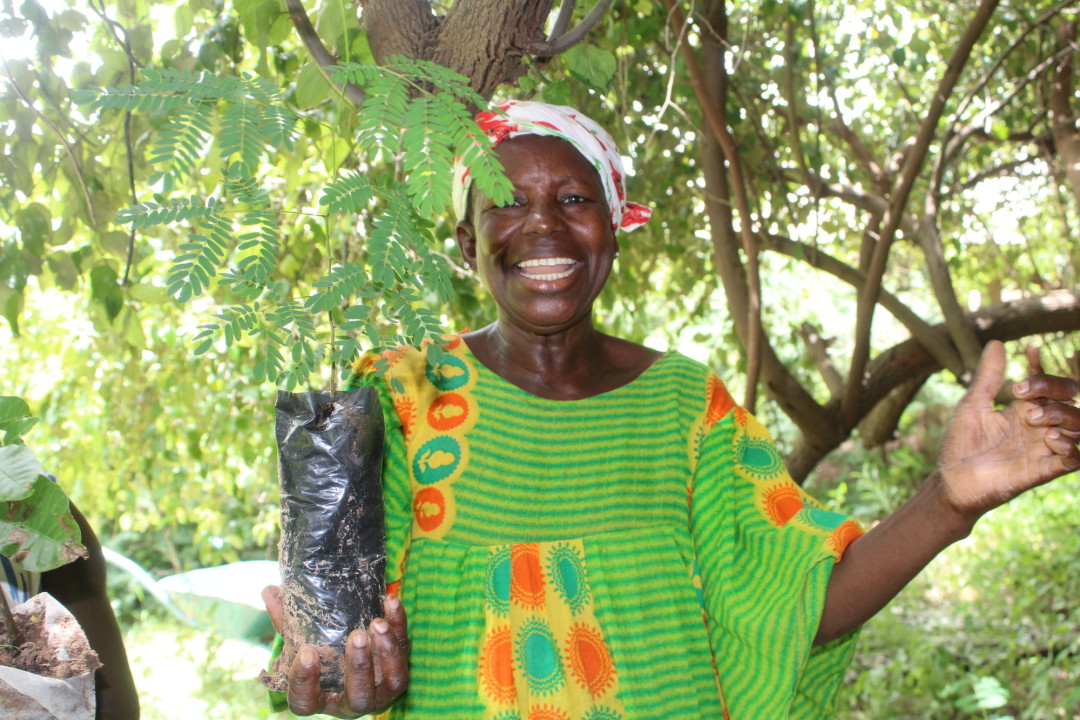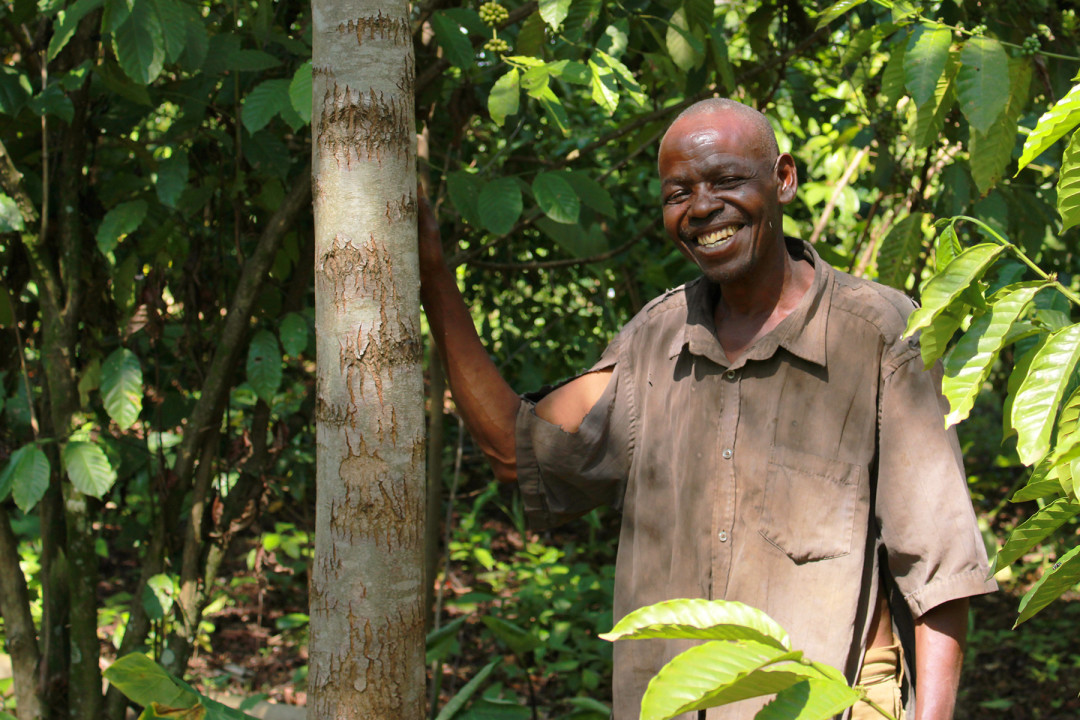Our Mission
Around the world, modern and industrialized farming practices are destroying the environment—and, at the same time, failing to provide reliable income and nourishment for the farmers we all depend on to survive. At Trees for the Future (TREES), we recognize that unsustainable land use is the root cause of our most pressing challenges. We confront these challenges by serving the people at the heart of our global food systems: farmers and their families. As a global leader in agroforestry training for over 30 years, TREES provides hands-on, immersive education, skill building, and support, encouraging farmers to work with nature, not against it.
Our signature methodology, the Forest Garden Approach, helps farmers transform their land with thousands of fast-growing, ecologically appropriate trees and dozens of other crops, creating new possibilities for themselves and their communities. By embracing sustainable land practices, farmers are reclaiming their agency, breaking the cycles of climate change and generational poverty, and rebuilding our food systems from the ground up.
How Your Donations Help
- $0.35 plants 1 tree
Donate Now
Our Impact
over 2 years ago — Kaffrine, Senegal

Disputes between farmers and herders have plagued families in West Africa for years. Recently, conflicts over livestock grazing have become increasingly more violent, with more than 15,000 deaths since 2010. In 2021, Trees for the Future joined forces with local farmer organizations to resolve these conflicts through the Forest Garden Approach. By planting living fences, which protect the land from grazing animals, peace has prevailed and lives have changed for the better. Many farmers in the region rely on one large peanut crop, but through their Forest Garden training, they are encouraged to grow more than a dozen species to eat and sell. “Life is more comfortable when you offer your children a safe future.” says Aliou Diamada, a farmer in the program.
almost 3 years ago — Busia, Uganda

Thomas is one of the first farmers to join TREES program in Busia, Uganda. In 2015, Thomas had about 550 trees growing on his land and three crops to sell throughout the year. By the end of the program, he had 3,740 trees in his Forest Garden and more than a dozen marketable products. At 60 years old, Thomas is able to comfortably feed his family of 12, and finds comfort in knowing that this skills he learned seven years ago will add value to his land and livelihood for years to come.
Causes We Support
Countries We Serve
United Nations Sustainable Development Goals
Trees for the Future's Forest Garden Approach offers farmers a way to transform their land with thousands of fast-growing, ecologically appropriate trees and dozens of other crops—encouraging them to work with nature, not against it. With dedicated supporters, staff, offices, and collaborative partnerships around the world (SDG 17), we’re committed to sustaining deep relationships with the farming communities we serve; our work is results-driven, holistic, and sensitive to the specific needs of different cultures and geographies. Trees for the Future's Forest Garden Training Program is grounded in inclusivity and accessibility. Staff work to ensure that every farmer can receive life-changing training regardless of income, education, disability, age, or gender (SDG 5 / SDG 10). Led by TREES’ local staff, and in coordination with community leaders, farmers master the Forest Garden Approach over four years of hands-on, immersive training (SDG 4 ). With the necessary seeds, tools, and resources, degraded and unproductive fields quickly become a source of life and resilience- fostering biodiversity (SDG 15), sequestering carbon from the atmosphere (SDG 13), and supporting the needs of farming families for years to come. As a farmer’s land transforms, they’re no longer dependent on the success of one annual harvest. Instead, they are growing and harvesting a diverse array of fruits, vegetables, legumes, and grains, establishing reliable sources of food and income for their family year-round (SDG 2). They also become more competitive in their regional market, offering food options that are otherwise hard to come by because of the prevalence of unproductive farming methods (SDG 1 / SDG 8). With increased income and food security, farming families are able to access healthcare (SDG 3), send their children to school (SDG 4), explore business opportunities (SDG 8), and create more equitable societies for themselves and future generations (SDG 10).